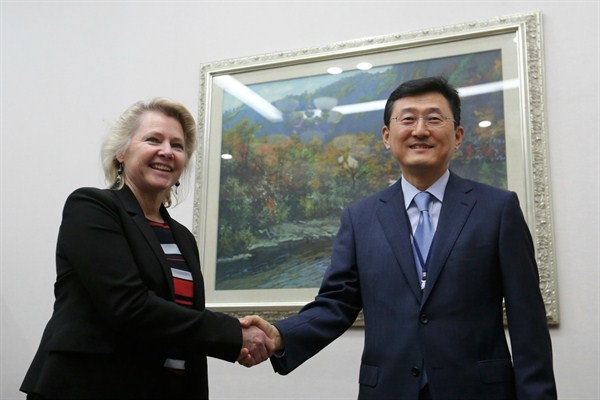Unless you’re Rip Van Winkle, you probably already know that next month, international attention will be on the world’s two acute nuclear weapons cases: Iran and North Korea. May 12 is the deadline for U.S. President Donald Trump to decide if he will continue to waive sanctions against Iran as part of the seven-nation nuclear agreement signed in 2015. And all month long, teams in Washington and Pyongyang will be planning an unprecedented summit between Trump and North Korean leader Kim Jong Un, with the North’s nuclear program the main item on the agenda.
There are at least two ways in which these two chronic problems of international security are related. The first is familiar: Would ending U.S. commitment to the Iran deal affect the prospects for a negotiated rollback of North Korea’s nuclear weapons activities? The second is often neglected: To what extent do the regimes in Tehran and Pyongyang see their nuclear programs as a permanent part of their national security strategies, or might they consider their nuclear programs as a means to an end? Are they willing to actually give up their nuclear programs in exchange for some other guarantee of security—for their own sake, as regimes, and for their country?
As May 12 nears, French President Emmanuel Macron has the baton. During his state visit to Washington this week, he is expected to make the case on behalf of all of his European partners for the U.S. to remain in the agreement. He will presumably argue that any change in the deal’s legal and political status would provide Iran a chance to resume now-proscribed activities, making the Iranian nuclear danger much more immediate.

